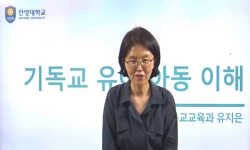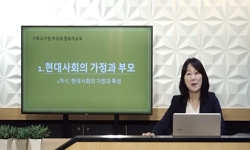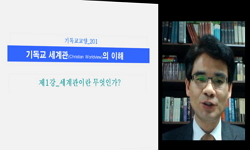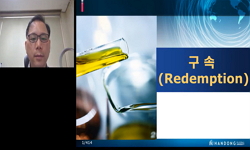The matter of ‘Simseong' or ‘spirit' is one of primary issues of Korean history in Confucian thoughts. Then, the introduction of Catholicism first became a decisive opportunity that Confucian scholars in Joseon researched the mater of spirit in ea...
http://chineseinput.net/에서 pinyin(병음)방식으로 중국어를 변환할 수 있습니다.
변환된 중국어를 복사하여 사용하시면 됩니다.
- 中文 을 입력하시려면 zhongwen을 입력하시고 space를누르시면됩니다.
- 北京 을 입력하시려면 beijing을 입력하시고 space를 누르시면 됩니다.
19-20세기 한국 지식인들의 ‘靈魂’ 인식과 재전유의 궤적: 정약용, 박은식, 변영만을 중심으로
한글로보기https://www.riss.kr/link?id=G3790232
- 저자
-
발행기관
-
-
발행연도
2010년
-
작성언어
Korean
-
주제어
심성 ; Eunsik Park ; the philosophy of Wang Yangming ; mind ; sprit ; Christianity ; Western Learning ; Romanticism ; Yongman Byon ; Matteo Ricci ; Yakyong Jung ; 양지 ; 영혼 ; 귀신 ; 영체 ; 국혼 ; 마테오 리치 ; 정약용 ; 박은식 ; 성리학 ; 양명학 ; 기독교 ; 근대적 자아 ; 히라타 아츠타네 ; 기타무라 도코쿠 ; 핫토리 요시카 ; 황석우 ; 김억 ; 이광수
-
자료형태
한국연구재단(NRF)
-
0
상세조회 -
0
다운로드
부가정보
다국어 초록 (Multilingual Abstract)
The matter of ‘Simseong' or ‘spirit' is one of primary issues of Korean history in Confucian thoughts. Then, the introduction of Catholicism first became a decisive opportunity that Confucian scholars in Joseon researched the mater of spirit in earnest. Matteo Ricci introduced spirit as a translation from Korean, anima in Latin at first in De Deo Verax Disputatio(1595) and discussed the in-depth idea in considerable amount of the book. As Catholicism has been propagated in Joseon Dynasty since 17th century, the spirit idea has been widely well-known among advanced intellectuals. They criticized the unrealistic aspect of Catholicism, generally based on Neo-Confucian world view, but the connection with the heterogenous reasoning system made the meaning structure of authentic Neo-Confucianism transform considerably. Though Jeong, Yak-yong was a Catholic once but immediately became a renegate, his original academic achievements were closely connected with nothing less than Confucianism. For example, ‘moral human' that he pursued, was the ideal of life only if the existence of divine emperor or the Lord of heaven was based upon the premise, unlike previous Neo-Confucianism. However, Jeong, Yak-yong would not eventually accept the idea of ‘immortal' soul, though he translated Simseong with ‘Yeongche' and thought that the existence of Lord of heaven was based on the moral human. On the other hand, Park, Eun-sik, a protagonist for ‘Gukhon’, inspired the soul into nationalistic immortality, utilizing ‘Yangji', a keyword of the doctrines of Wang Yangming. Park, Eun-sik sufficiently recognized the close relationship between Yangji and soul or between the doctrines of Wang Yangming and Christianity except the argument for Simseong in traditional Confucianism and raised his own unique Dongdoseogiron(. So the case of Kitamura Tokoku, a pioneer of Japanese romantic literature, interestingly did in the situation. In short, Simseong, Yangji and soul etc. having different discoursive genealogy in 1900s, were widely exercised as the words indicating certain inner sources that could make a modern ego form, but ‘soul' imbued with the romantic implication ruled the root as the young intellectual accepting the western culture through studying in Japan, were highly appeared since the late 1910s.
For instance, in a broad sense, the fact that Hirata Achtane arranged a theoretical ground in justifying the nationalism from the ‘discourse of ghost’ discussing thoroughly the whereabouts of a soul after death, in a limited sense, a series of modern affairs that Hattori Yosika mentioned the core of free verse as the inner breath of individuals and realization of its new rhythm, all were closely associated. At the process of organizing a modern individual or people, a unparalleled ripple effect of the idea of soul acquires an apparent illustration from epoch-making changes formed in literary discourses at the time of Joseon, corresponding the stated changes in Japan. Hwang, Seok-woo sought the potential of Korean free verses through a new word, ‘Yeongryul’ whereas Lee, Gwang-su developed the romantic implication included in ‘soul’ and established so-called national literature. However, another literary expressions were possible for the realistic recognition that the romantic unity inherent in ‘soul’ was no more available in the early of 1920's. Severe criticisms for ‘soul’ per se that young artists in Joseon in the colonial era showed, aroused the contradiction and paradox of colonial modernism that Korean society should face.
국문 초록 (Abstract)
‘심성(心性)’ 혹은 ‘영혼(靈魂)’의 문제는 한국 유학사상사의 중심 쟁점 중 하나였다. 그런데 조선의 유학자들이 영혼의 문제를 본격적으로 탐구하게 된 데에는 우선 천주학의 유입이 ...
‘심성(心性)’ 혹은 ‘영혼(靈魂)’의 문제는 한국 유학사상사의 중심 쟁점 중 하나였다. 그런데 조선의 유학자들이 영혼의 문제를 본격적으로 탐구하게 된 데에는 우선 천주학의 유입이 결정적인 계기가 되었다. 마테오 리치(Matteo Ricci)는 『천주실의(天主實義)』(1595)에서 라틴어 아니마(anima)의 한역어로서 영혼을 처음 소개했고, 그 책에서 이 개념어를 상당한 분량에 걸쳐 심도 있게 논의했다. 그리고 17세기 이후 천주교가 조선사회에도 전파되면서, 이 영혼 개념은 선진적인 지식인들 사이에서 널리 회자되었다. 그들은 대개 성리학적 세계관에 기반하여 천주학의 허구성을 비판했으나, 전혀 이질적인 사유체계와의 만남은 정통 성리학의 의미체계를 상당 부분 변모시켜 버렸다. 한때 천주교 신자였으나 곧 배교한 정약용(丁若鏞)만 하더라도, 그의 독자적인 학문적 성취가 다름아닌 천주학과 긴밀하게 연관되어 있었다. 예컨대, 그가 추구한 ‘도덕적 인간’이란 기존 성리학과 달리 상제(上帝) 곧 천주(天主)의 존재를 전제로 할 때 비로소 가능한 삶의 이상(理想)이었다. 하지만, 심성을 ‘영체(靈體)’로 번안하고 천주의 존재를 도덕적 인간의 기초로 삼았던 정약용도 ‘불멸하는’ 영혼 관념은 끝내 수용하지 않았다. 그에 비해, ‘국혼(國魂)’의 주창자였던 박은식(朴殷植)은 양명학의 핵심어인 ‘양지(良知)’를 활용하여 영혼에 민족주의적 불멸성을 불어넣었다. 박은식은 전통유학의 심성론 외에도 양지와 영혼, 양명학과 기독교 사이의 근친성을 충분히 의식하고 특유의 동도서기론을 제기했으며, 흥미롭게도 그러한 사정은 일본 낭만주의 문학의 선구인 기타무라 도코쿠(北村透谷)의 경우에도 마찬가지였다. 요컨대, 1900년대까지만 해도 상이한 담론적 계보를 지닌 심성, 양지, 영혼 등이 근대적 자아의 형성을 가능케 하는 어떤 내적 원천을 지칭하는 말로 두루 활용되었으나, 1910년대 후반 이후 일본 유학을 통해 서구문화를 흡수한 청년지식인들이 대거 등장하면서 낭만주의적 함의가 농후한 ‘영혼’이 가장 심중한 영향력을 행사하게 된다. 예컨대, 그것은 멀게는 히라타 아츠타네(平田篤胤)가 『靈の眞柱』 등에서 사후 영혼의 행방을 논구하는 가운데 ‘귀신론(鬼神論)’으로부터 국가주의(천황제)를 정당화하는 이론적 근거를 마련하거나, 가깝게는 1910년을 전후로 하여 핫토리 요시카(服部嘉香)가 개인의 내적 호흡과 그 새로운 리듬의 구현을 자유시의 핵심으로 거론했던 일련의 근대적 사건들과 긴밀한 연관 속에 있다. 근대적 개인 혹은 민족을 구성하는 과정에서 영혼이라는 개념어가 보여준 유례없는 파급력은, 상기한 일본에서의 변화에 조응하여, 당대 조선의 문학담론에서 이루어진 획기적인 변화들에서 뚜렷한 예증을 얻는다. 황석우(黃錫禹)는 ‘영률(靈律)’이라는 신조어를 통해 한국적인 자유시의 가능성을 모색했고, 그에 비해 이광수는 ‘영(靈)’에 내장된 낭만주의적 함의를 계발하여 이른바 민족문학을 확립하고자 했다. 그런데, 다시 1920년대 초반에 이르면 ‘영혼’에 내재된 낭만주의적 통일성이 더 이상 유효하지 않다는 현실 인식에서 다른 문학적 표현이 가능해졌다. 이 시기 식민지 조선의 청년예술가들이 보여준 ‘영혼’에 대한 신랄한 비판은 그 자체로 한국사회가 직면해야 했던 식민지적 근대성의 모순과 역설을 환기시켜 준다.











